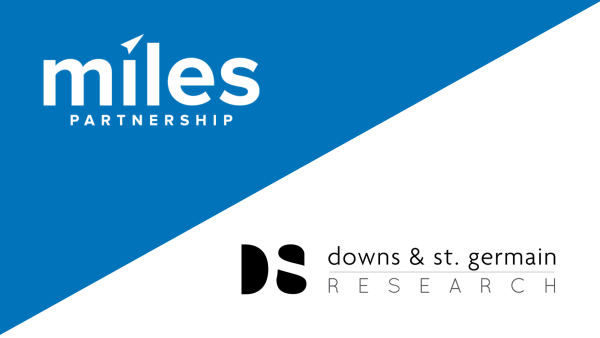Article
How We Think
Harnessing Research & Data

We invest in independent, third-party research to drive strategy, measurement and optimization.
What sets Miles apart is our ability to turn that research and analytics into actionable insights that inform decisions, shape changes and drive improvements for our clients.
Stay up to date
Looking Ahead
Let’s connect! Our team attends more than 100 industry conferences and hosts numerous webinars throughout the year. Here’s where we’ll be and what we’re talking about next.
The Latest from Miles
We’re committed to shaping a bold future for the travel industry. From new research and trends to webinars and conference presentations, here are some of the topics we’ve been thinking about lately.


Article
White Paper: The Value of Print in a Digital Marketing World
Read more
Research
Quarterly Research Powered by of The State of the American Traveler
Read more
Article
2026 Miles Scholarship Program for STS Marketing College
Read more
Article
The Trust Factor: 3 Forces Reshaping the Future of DMOs
Read more
Research
The Future of the Meetings Industry
Read more
Article
Miles Partnership, LLLP Makes Strategic Investment in Downs & St. Germain Research
Read more
Article
Understanding American Travelers with Accessibility Needs: Insights from 2025 Research
Read more
Article
Cutting Out the Chatter: The Rise of Quiet Travel
Read more
Article
White Paper: Search and Discovery in the AI Era
Read more
Webinar
AI Roundtable for Destinations
Read more
Article









